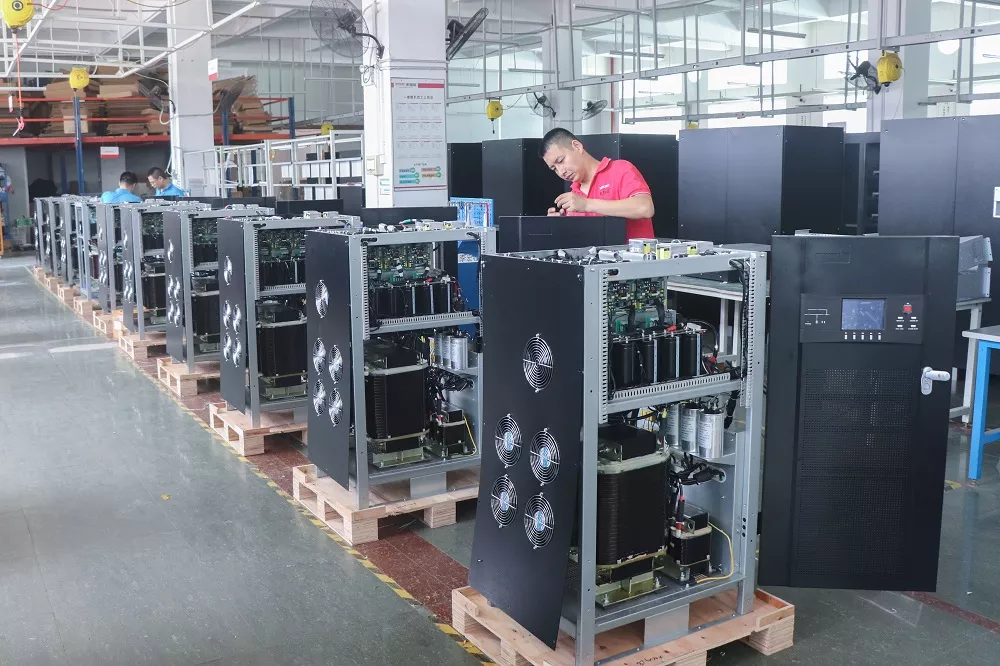With the development of big data and cloud computing, data centers will become more and more centralized due to the consideration of large-scale data operations and reduction of energy consumption. Therefore, the UPS is also required to have a smaller volume, a higher power density, and a more flexible installation method. A UPS with a small footprint and high power density per cabinet will save users more computer room rent.
A smaller module capacity means that more power modules will be used in a system of the same capacity, and the system reliability will be reduced accordingly; while a larger module capacity may have insufficient redundancy or insufficient system capacity when the system capacity is low. Causes capacity waste (such as 60kVA system capacity, if 50kVA modules are used, two must be used, and at least three are required for redundancy). Of course, if the overall capacity of the system is larger, a larger capacity power module can also be used. The recommended capacity of modular UPS is generally 30~50kVA.
The user’s actual use environment is changeable. In order to reduce the difficulty of work, the modular UPS should be required to support two wiring methods at the same time. At the same time, for some computer rooms with limited space or modular data centers, the UPS power supply may be installed against the wall or against other cabinets. Therefore, the modular UPS should also have a complete front-installation and front-maintenance design.
Because the purchase of batteries occupies a large part of the cost of purchasing modular UPS power supplies, and the operating conditions and service life of the batteries directly affect the performance of the UPS power supply functions, it is necessary to purchase modular UPS power supplies with intelligent battery management technology.
Try to choose brand-name modular UPS power products from well-known companies. Because these companies not only have complete testing equipment, advanced capabilities, and the ability to ensure product quality, but they also have a strong sense of service. They can actively provide users with pre-sales, in-sales, and after-sales services, and are characterized by fast response to user information. .
When choosing a modular UPS power supply, it should also consider its lightning protection and surge protection capabilities, overload capability, load capacity, maintainability, manageability and other factors. In short, UPS power supply is indeed the core equipment of the power supply system. How to choose and configure a modular UPS power supply is very important to users. You should try your best to select and configure a cost-effective UPS power supply to ensure safe and reliable uninterrupted power supply for your equipment.
Summary: As a new type of product, modular UPS is only a supplement to traditional UPS products. Nowadays, modular UPS and traditional UPS have kept pace with each other in the market. Modular UPS is a development direction in the future. The traditional UPS of 10kVA~250kVA suitable for data center is likely to be replaced by modular UPS products in the next 3 to 5 years.
Post time: Jan-07-2022







